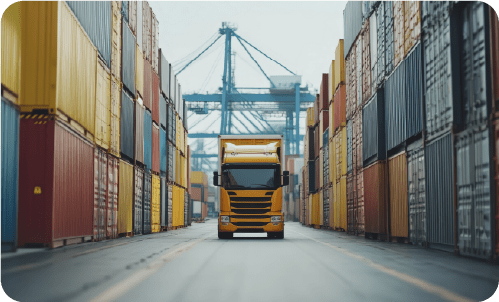Digital Transformation with S/4HANA

Summary
With evolving market demands and sustainability goals, businesses can no longer rely on outdated ERP systems. Bosch explores how SAP S/4HANA enables enterprises to modernize operations by integrating AI, big data, and real-time analytics. In this blog, discover how key principles like process optimization, data cleansing, and automated testing drive seamless digital adoption. Learn how SAP’s “Steering to Zero” initiative is helping businesses achieve zero emissions, zero waste, and zero inequality through technology-driven innovation.
Introduction
Digital transformation has been ubiquitous over the last decade as businesses struggle to keep pace with evolving technologies to stay relevant and competitive. Moving from old, stagnant systems to new-age technologies has become imperative for success. The ‘perform or perish’ narrative is real and organizations cannot shy away from embracing digital transformation. However, what is even more real is the need to stay environmentally conscious. And so, we are witnessing a turning point where digital transformation needs to incorporate sustainability.
Understanding the position of the global community with regards to sustainable digital transformation, Bosch Conversations is back with its latest installment, on the theme “Digital Transformation with S/4HANA | Is It Business Transformation or Technology Adoption?”. This eye-opening discussion was led by industry experts – Axel Vetter, Head of S/4HANA Customer Advisory, Middle & Eastern Europe, Anton Weig, Partner and Global Community Leader of SAP S/4HANA, Sriram Sampath, Principal Consultant, Bosch Software and Digital Solutions, A V V Subramanian, Business Area Head, Enterprise Core Application Services, Bosch Software and Digital Solutions and Deepak Nadig Business Development Head – Digital & IT, Bosch Software and Digital Solutions.
SAP S/4HANA in the New World
“When we talk about the new world, we see significant changes over the last decade and more so over the last few years due to the pandemic. The need for digitalization is much higher,” said Sriram Sampath, Principal Consultant, Bosch Software and Digital Solutions. He went on to highlight three major new norms of the world today: inter-dependence, big data and personalized experiences through segment-of-one. Each of these norms demand advanced technologies to become a core part of any business.
This is exactly where S/4HANA comes into the picture. By utilizing technologies such as code pushdown and O-data Protocols, S/4HANA ensures faster, more stable and highly scalable interconnectedness; at a time where reliable connections are more important than ever. Similarly, S/4HANA provides a new-age database that allows in-memory computing and columnar storage. This supports not just the ability to store massive amounts of data but also the embedment of analytics and AI/ML capabilities within the core transaction processing system. Furthermore, this modern-day ERP system allows organizations to become highly responsive to customer requirements with simplified processes and attractive UIs. All in all, S/4HANA provides a plethora of functionalities that can be implemented in unison to shape the various pit stops on the digital transformation roadmap-by enabling, exploiting, enhancing and expanding.
Key Principles of Enterprise Transformation
How can you achieve the most out of your digital transformation? Where is the best place to start? Answering these questions is pivotal to the success of any organization. Anton Weig, Partner and Global Community Leader of SAP S/4HANA answers these daunting questions by providing us with five key principles:
- Optimizing the processes: Start with existing processes that have already been standardized and then adjust them for your specific organizational needs. Build a harmonized business process template.
- Keeping the standard: Once your processes are designed and implemented, ensure constant control over the harmonization, standardization and digitalization KPIs.
- Cleansing the data: Transformation requires data migration and clean data is the secret to success. Ensure high data quality by utilizing tools that allow you to validate data.
- Plan for comprehensive testing: Implement smart, automated testing by identifying the right test cases to mitigate risks and increase user acceptance.
- Think early of a global template governance: Prevent your standardized templates from proliferation.
Steering to Zero
The strive for sustainability is at the heart of digital transformation around the world. In fact, studies have shown that an estimated US $90 trillion will be invested into climate-smart infrastructures by 2030. Seeing an investment as extravagant as this is enough to make one realize that the simple adoption of digital technology is not enough, the increase in efficiency and innovation needs to incorporate sustainability across the value chain.
Between the discussions, a question was posed to the audience, “How much of an impact do you feel IT can have on sustainability topics?”. A resounding 87% felt that IT can greatly support and manage the sustainability goals of organizations. It is clear to see that technology is vital to achieve sustainability and SAP’s “steering to zero” policy is thus increasingly prominent.
Steering to zero covers three core dimensions: zero emissions, zero waste and zero inequality. SAP feels a great sense of responsibility to chase for a greener tomorrow as an estimated 77% of all transactions in the world are somehow supported by SAP systems. In the words of Axel Vetter, Head of S/4HANA Customer Advisory, Middle & Eastern Europe, “Our purpose as a company is to help the world run better and improve people’s lives.”. He adds that this has been the purpose of SAP for many years now and that they have adopted a lifelong sustainability quest of chasing zero.
Wholeheartedly working to achieve “zero” requires an enterprise to enshrine sustainability at the core of all business processes. This encompasses practices like creating sustainable products, reducing carbon footprints, eliminating waste, driving responsibility across supply chains and adhering to global and local regulations.
The Dynamic World of Business
“We are already there with sustainability. The entire portfolio is being shaped towards managing sustainability. It’s not only specific solutions, it’s the entire stack.” This is what Axel Vetter had to say regarding SAP’s strategy to address business beyond just transaction processing. He further highlighted a number of key solutions coming up from SAP with Bosch as a partner in the next few months, including Responsible Design & Production and Sustainability Control Tower.
The SAP Sustainability Control Tower for example, strives to provide holistic visibility and reporting. Coming out this December, it is going to be based on the SAP Data Warehouse Cloud and the reports will be presented by SAP Analytics Cloud. A number of functionalities and processes work together to demonstrate that SAP has a complete concept of the dynamic business world based on capturing, analyzing and using data.
In conclusion, sustainable digital transformation is truly at the forefront of our well-informed, environmentally conscious generation. All the information put forward in this installment of Bosch Conversations shed light into how digital transformation can be easily adopted and leveraged for success, all whilst embracing sustainability. With ERP systems like S/4HANA paving the path for the modern-day digital transformation, businesses aspiring to sustainably grow in the next decade have a strong ally to support them.






